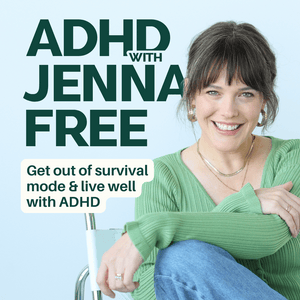What if honouring your ADHD brain is actually making things worse?
What if the relief you feel from avoiding stressful tasks isn't self-acceptance... but dysregulation running the show?
In this episode, I break down three common ways we think we're honouring our neurodivergence, but we're actually fueling the dysregulation.
There's a difference between conscious choice and compulsive avoidance. One is empowering. The other keeps you stuck.
We'll look at:
why avoiding things that cause anxiety (like mail) tells your nervous system they're dangerous - making the problem worse over time
how the panic sprinter cycle (frantic bursts then crash) isn't your natural state - it's your brain in fight or flight
why text message overwhelm is dysregulation, not neurodivergence (all-or-nothing thinking, perfectionism, feeling like demands)
the key question: is this a conscious choice I'm making, or is dysregulation making choices for me?
how to break these cycles by facing things with regulation work - not white-knuckling, not avoiding
You're an adult. You can do whatever you want. But when you're making choices from a regulated place, you'll actually want to do the things that used to feel impossible.
Download the free ADHD Regulation Guide -- www.adhdwithjennafree.com/adhdguide
Want to dive into this work to reduce symptoms and make life more enjoyable? ADHD Groups are now open -- www.adhdwithjennafree.com/groups
Pre-order "The Simple Guide to ADHD Regulation" -- www.jennafree.com/book
Connect with Me
Instagram
TikTok


